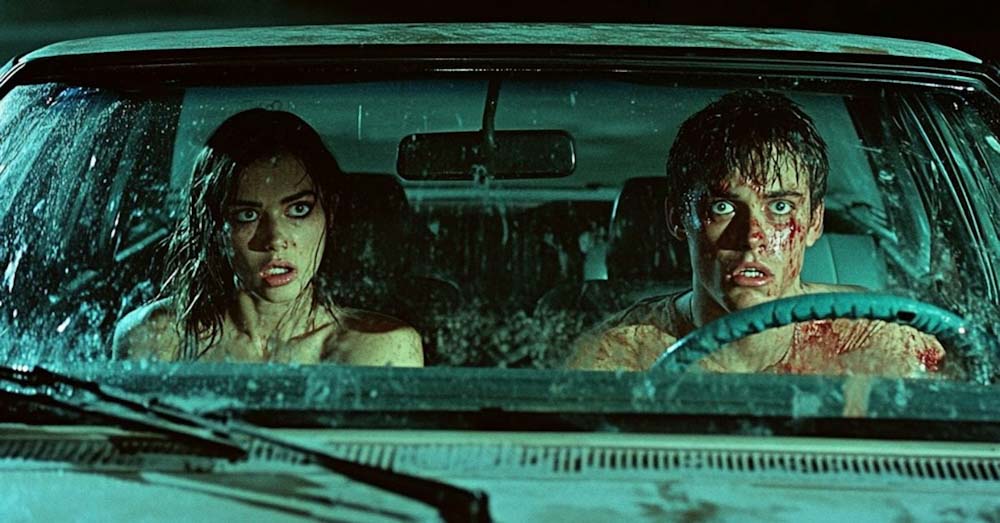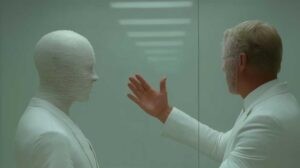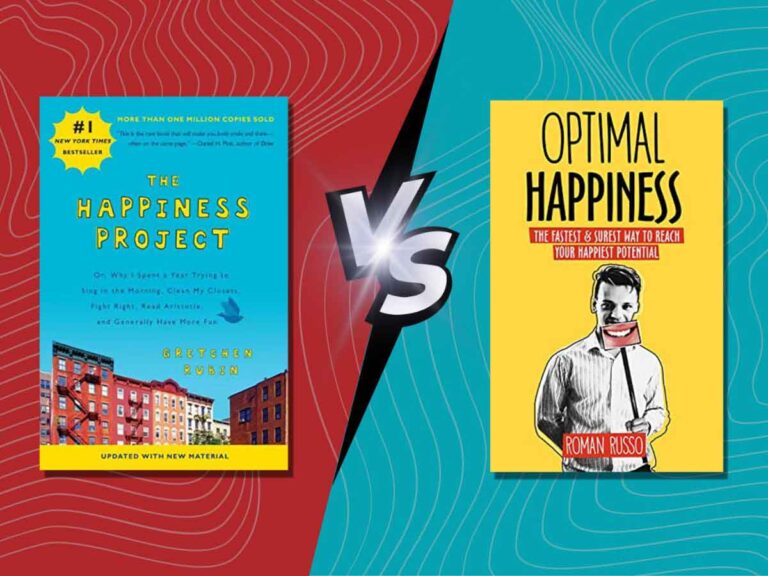
Recently, I watched an American horror TV series called The Purge and it left me in shock. For the next 24 hours, I felt paranoid and constantly thought about the dark side of human nature. I found it difficult to trust others and even became afraid of my own shadow. My mind was filled with negative thoughts and it took a lot of effort to regain a positive mindset.
And this is the main reason why people should stop watching horror movies. They instill fear, paranoia, and put us in a negative mood. If we watch enough of them, we can actually brainwash ourselves into a permanent state of negativity, which is far from ideal. So, it’s important to be mindful of the impact that these types of media, including movies, series, books, news, and life in general (from now on, I will refer to only movies for simplification), can have on our mental well-being and we should stop watching horror movies.
But Horror Movies Do Not Affect Me
I honestly believe that most people who watch scary movies do not think they are affected by these terrifying images. However, I also believe that these same people do not fully understand the impact these movies have on their psyches, otherwise they would not watch them. The reason for this is because our minds are like sponges. They quickly and effortlessly absorb information, both positive and negative, like the lyrics to a song that we may not even like but can still sing along to if we hear it on the radio.
Indeed, consciously we can claim that we are not affected by scary movies, and we can even make it sound convincing. However, subconsciously, it is a different story altogether. Just consider procrastination. No one wants to procrastinate when they know they have something important to do, but we all do it from time to time.
The same logic applies to scary movies. They make us think negatively, and if you watch enough of them, they will brainwash us to be scared, paranoid, and afraid. Horror movies reinforce and change our brain’s negative pathways at the expense of the positive ones, leading our minds towards negative thinking. And then people who watch these scary movies on a regular basis start complaining saying that they see enemies at every turn, have trouble dealing with negative emotions, and cannot stay happy. This is indeed a mystery…
Violence, Evil, and Everything Unnatural
Today, I decided to watch a new series called 30 Coins. I saw a trailer, liked it, and since this series is in Spanish and I want to practice my Spanish, I thought it was a win-win. So I made myself comfortable and started to watch the first episode. Halfway through, my phone rang, so I paused the episode. After I finished talking, I realized that something strange was happening in my mind. I sat down and analyzed my thoughts, realizing that 30 Coins was actually a horror show and that it was negatively affecting my mind.
Upon further reflection, I have realized that the images that disturbed me the most were those of violence, stupidity, negative behavior, someone getting hurt, grotesque scenes, as well as supernatural scenes portrayed negatively. These scenes often revolved around themes of evil, wrongness, and unnaturalness, which have frequently had a negative impact on my mindset in the past.
I enjoy Sci-Fi and Action movies, but most movies I watch are not as explicit about negative topics as this horror show. Some level of discomfort is inevitable in life, but I strongly disagree that we need to proactively cultivate negativity in our lives.
As such, once I realized that 30 Coins was making me feel negative, despite liking the way it was filmed, the acting, and the action so far, I decided to stop watching it altogether.
Why We Like Horror Movies

It is said that the movies we enjoy the most are those in which we can relate to the main character. The more we identify with these characters, the more engaged we feel with the movie. This is why we feel so bad when the main character we liked gets hurt, dies, or faces other afflictions.
From an evolutionary standpoint, this makes sense, as the reason why we like watching movies is because we want to experience, get inspired by, and learn from these movies we are watching. We imagine how we would behave in similar situations if they were to happen to us. We try to learn from others’ mistakes, and movies provide endless ideas on how to act in different situations.
By the same logic, by watching horror movies, we try to understand how we could survive in an endless sea of horrors. So, if you were in the middle of The Purge, what would you do? Personally, I would probably be terrified and die shortly after, which is not a pleasant thought for my brain to process, leaving me with a lot of negative thinking.
I’m not saying that everything we see in movies will actually happen, but our brains absorb information, whether it’s possible or impossible, and try to prepare us for a variety of situations. The brain believes that if we are seeing something, it is within the realm of possibility in our lives, so it prepares us for it.
As a result, we often fill our brains with irrelevant information from movies and life that makes us negative and overall pollutes our minds. We become experts on completely irrelevant topics, such as celebrity gossip, when we could be using that time to learn about building a business or how to be happier. These skills would certainly serve us much better than a complete guide on how to survive an alien invasion or understanding in detail the latest gossip around Leonardo DiCaprio’s life.
Instead Of Watching Horror Movies
Some people enjoy fear. Or at least, that’s what they claim from the comfort of their TV. Fear raises their adrenaline levels, makes their blood boil, and makes them feel more alive and engaged. This attraction to fear often stems from the perception that their own lives are dull, boring, uninteresting, and filled with unhappiness. As a result, they seek out experiences that make them feel more alive.
However, it is important to recognize that the world is not as dull and uninteresting as it may sometimes seem. This feeling can arise when we constantly push our senses to the extreme, overwhelming our senses with a constant barrage of stimuli. We overload our auditory sense with a wide variety of music, and our taste sensations with different flavors, spices, and textures. We do the same with our other senses as well. However, this constant need for overstimulation can leave us feeling like something is going wrong and that we are not fully living our lives, especially when we suddenly cannot keep up with the constant and endless need to overstimulate our emotions, which is unrealistic to maintain in the first place, although many people actually try to do so.
On the contrary, when we counterintuitively reduce the level of stimulation, we discover that life has so much more to offer. We realize that there are many dimensions to our experiences that we often overlook because they are not as fast-paced and constantly engaging. However, these aspects are still interesting and can bring us even greater long-term happiness compared to a mind that is constantly overstimulated.
Take a refrigerator that cools our food or a tree that produces the air we breathe, for example. These things may seem dull and uninteresting to an overstimulated mind, but when we learn to appreciate the simplicity and embrace moments of stillness, we can find joy and happiness in them. By doing so, we begin to realize that the overstimulation brought about by scary movies or other intense experiences only serves to make our lives worse and unhappier.
It is then that we realize that things like overstimulation brought about by scary movies are just making our lives worse and unhappier. This is when we consciously decide to stop these actions and choose to be happy today and forever.
Recognize Happiness When You Witness it
In the 30 Coins example, I hinted at a life skill that all the happiest people possess – the ability to recognize what brings us happiness and what does not. By cultivating more of the former and avoiding as much as possible of the latter, we can increase our overall happiness.
For example, watching horror movies is something that immediately came to mind for me as something to avoid. This isn’t because I have researched horror movies and found them to lead to unhappiness, but rather because through personal experience, I can often sense which actions will make me happy or unhappy, and later I can find scientifically justifiable reasons for why this is the case.
Similarly, I can tell you for a fact that the following things lead to unhappiness:
– Overstimulation
– Dark humor
– Swearing
– Metal music
– Certain types of food
– Certain people; and
– Certain products
On one hand, it is beneficial to simply stop engaging in these unhappiness-inducing behaviors overall, regardless of whether you are a happiness-sensitive person or not, as it will automatically make you happier.
However, even better is to develop the skill of happiness in our own lives by learning to feel which actions will lead to more happiness or unhappiness. A great place to start is by reading more of this blog, subscribing to our newsletter, or even better, attending one of our happiness workshops.
Overall, if you take anything from this article, I recommend realizing that certain actions lead us to feel happier while others have the opposite effect. For example, watching horror movies makes us unhappier. Therefore, we should stop engaging in negative behaviors, while cultivating positive ones in our lives. By doing so, we are that much closer to leading our best lives full of happiness.
Thank you for reading!
















6 thoughts on “Stop Watching Horror Movies If You Want To Be Happy!”
Pingback: STOP Eating Spicy Food If You Want To Be Happy
Pingback: Psychoanalysis of Personal Sense of Well-Being
Pingback: Dark Humor Is A Sign Of Unhappiness?
This was a really interesting read. I can see how watching horror movies could invite negativity into one’s life.
It’s true, isn’t it? When I think about it, it makes me wonder what other things we do every day that make us negative. I’m trying to share my findings in this blog. I appreciate your support <3
You’re welcome! Don’t stop spreading your messages, they’re very insightful with interesting perspectives.